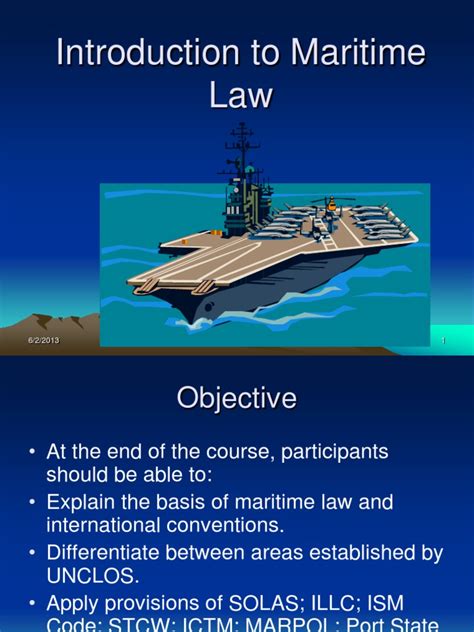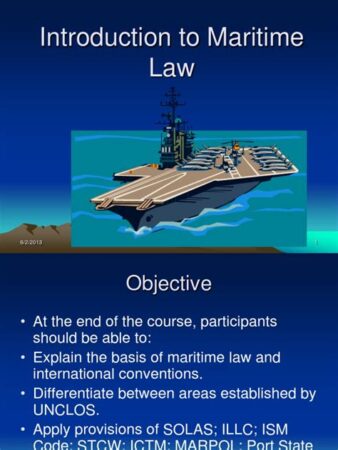
- Explain Maritime Law: A Comprehensive Guide for Mariners and the Curious
-
FAQ about Maritime Law
- What is maritime law?
- What are the different types of maritime law?
- What are some of the key principles of maritime law?
- How is maritime law enforced?
- What are some of the common legal issues that arise in maritime law?
- How can I learn more about maritime law?
- What are the benefits of learning about maritime law?
- Who should learn about maritime law?
- What are some of the challenges facing maritime law?
Explain Maritime Law: A Comprehensive Guide for Mariners and the Curious

Greetings, readers! Welcome to our extensive dive into the intriguing world of maritime law. Whether you’re a seasoned seafarer or simply curious about the legal framework governing the vast seas, this article aims to enlighten you with a comprehensive explanation of maritime law.
Maritime law, also known as admiralty law, governs the conduct of parties engaged in activities on or related to the sea, ocean, and navigable waterways. It covers a wide range of topics, including:
- Shipbuilding and repair
- Marine insurance
- Maritime contracts
- Shipping accidents and disputes
- Environmental regulations
- Offshore energy
The Evolution of Maritime Law
Maritime law has a rich history, dating back to ancient times. As trade and commerce flourished across the seas, the need for laws to regulate maritime activities became apparent. Over centuries, maritime law has evolved through customs, treaties, and judicial decisions.
Today, maritime law is a complex and sophisticated body of law, influenced by both domestic and international sources. It plays a vital role in ensuring the safe and orderly conduct of maritime activities worldwide.
Aspects of Maritime Law
1. Maritime Contracts
Contracts are essential in maritime law, governing various aspects of ship operations, such as:
- Charterparties: Agreements for the hire of a vessel.
- Bills of lading: Documents acknowledging the receipt of goods for transportation.
- Insurance agreements: Covering risks associated with maritime activities.
2. Maritime Torts
Maritime torts are civil wrongs that occur in a maritime context. They include:
- Collisions: Accidents involving vessels.
- Grounding: Ships running aground.
- Pollution: Discharge of harmful substances into the marine environment.
3. Maritime Safety and Environmental Protection
Maritime law emphasizes safety and environmental protection. Key regulations include:
- Collision avoidance regulations: Rules governing ship navigation to prevent collisions.
- Pollution prevention regulations: Measures to protect the marine environment from discharges and emissions.
- Ship inspections and certifications: Ensuring that vessels meet safety and environmental standards.
Maritime Law Table Breakdown
| Topic | Content |
|---|---|
| Sources of Maritime Law | Statutes, treaties, case law, customs |
| Scope of Maritime Law | Activities on or related to the sea |
| Key Principles | Good faith, reasonable care, fault liability |
| Maritime Contracts | Charterparties, bills of lading, insurance agreements |
| Maritime Torts | Collisions, grounding, pollution |
| Maritime Safety | Collision avoidance regulations, ship inspections |
| Environmental Protection | Pollution prevention, waste management |
Conclusion
Maritime law is a vast and multifaceted field that plays a crucial role in the safe and sustainable use of our oceans. By understanding the intricacies of maritime law, mariners, shippers, and coastal communities can ensure compliance with regulations and resolve disputes effectively.
To delve deeper into specific aspects of maritime law, we invite you to explore our other articles:
- [Maritime Law for Shipping Companies](link to article)
- [Navigating Environmental Regulations in Maritime Activities](link to article)
- [Resolving Maritime Disputes through Arbitration](link to article)
FAQ about Maritime Law
What is maritime law?
Maritime law is a body of law that governs legal issues arising from activities that take place on oceans, seas, and other navigable waterways. It covers a wide range of topics, including shipping, trade, fishing, environmental protection, and the rights of моряков.
What are the different types of maritime law?
Maritime law can be divided into two main types: public law and private law. Public law governs the relationship between the state and individuals or entities who engage in maritime activities. Private law governs the relationship between individuals or entities who engage in maritime activities, such as contracts and torts.
What are some of the key principles of maritime law?
Some of the key principles of maritime law include:
- The law of the sea: This is a body of international law that governs the use of the oceans and seas.
- The law of salvage: This is a body of law that governs the rights and obligations of those who salvage property from the sea.
- The law of admiralty: This is a body of law that governs maritime matters in the United States.
How is maritime law enforced?
Maritime law is enforced by a variety of государственные agencies, including the Coast Guard, the Maritime Administration, and the Environmental Protection Agency.
What are some of the common legal issues that arise in maritime law?
Some of the common legal issues that arise in maritime law include:
- Maritime accidents: These are accidents that occur on or in the water, such as collisions, groundings, and fires.
- Maritime insurance: This is insurance that protects against maritime risks, such as damage to vessels and cargo, and injury to sailors.
- Maritime liens: These are claims against a vessel that can be used to secure payment of debts.
How can I learn more about maritime law?
There are a variety of resources available to help you learn more about maritime law, including books, articles, and websites. You can also take courses on maritime law at many law schools and universities.
What are the benefits of learning about maritime law?
Learning about maritime law can be beneficial for a variety of reasons, including:
- It can help you understand the legal framework that governs maritime activities.
- It can help you avoid legal pitfalls when engaging in maritime activities.
- It can help you resolve maritime legal disputes.
Who should learn about maritime law?
Anyone who is involved in maritime activities should learn about maritime law. This includes mariners, ship owners, maritime insurers, and lawyers who represent clients in maritime cases.
What are some of the challenges facing maritime law?
Maritime law faces a number of challenges, including:
- The increasing complexity of maritime activities.
- The growing number of international maritime disputes.
- The need to protect the marine environment.




